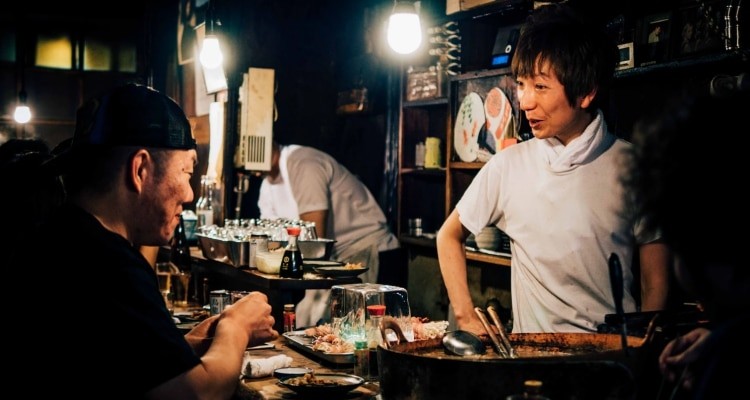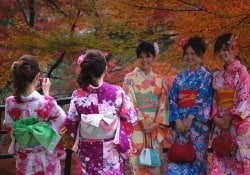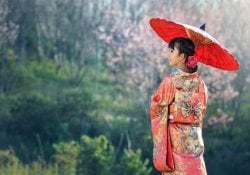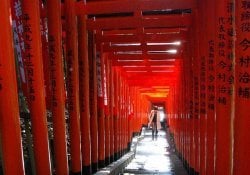The Japanese language is rich in expressions and phrases that reflect the culture and values of the country. One of these phrases is "Genki Desu Ka?" (元気ですか?), Which can be translated as "Are you okay?", "How are you" or "how are you?" In this article, we will explore the meaning and importance of this expression in Japanese culture, as well as its use in everyday life.
The word "GENKI" (元気) consists of two Kanji characters: "Gen" (元), which means "origin" or "foundation", and "ki" (気), which represents "energy" or "spirit". Together, these characters form the concept of "vital energy" or "health". So when asking "Genki Desu Ka?", You are basically asking if the person has good health, energy and spirit.
We also recommend reading:
- Greetings and Farewells in Japanese
- 50 Ways to Say “Hi” and “Hello” in Japanese
- 10 Japanese Words that Describe Japan and its Culture
Índice de Conteúdo
How are you?
“Genki desu ka?” is a common greeting in Japan, used between friends, co-workers, and even strangers in more formal situations.
The typical answer to this question is "Genki Desu" (元気です), which means "I'm fine" or "I'm energy." However, it is common for the Japanese to give a positive response even if they are not feeling very well in order to maintain harmony and not worry others.
The expression is also often used in more informal contexts, such as “Genki?” (元気?) between close friends or family. Also, it is common to hear variations of the phrase, such as “O-genki desu ka?” (お元気ですか?), which adds a touch of politeness and respect when inquiring after someone's welfare.

Cultural Importance
“Genki desu ka?” it's more than just a casual question about someone's well-being. In Japanese culture, it is an expression that shows concern, respect and consideration for the other. Asking about a person's health and energy is a way to express genuine interest in their well-being and establish an emotional connection.
Furthermore, the expression reflects the importance of harmony and balance in Japanese society. Being “genki” implies being in physical, mental and emotional balance, and is considered an ideal state to live in a healthy and happy way.

Other ways to ask how the person is doing
Are there variations and synonyms for “Genki desu ka?” in the Japanese language. Some of these variations and synonyms include:
How can I help you? (いかがですか?)
"Ikaga Desu Ka?" It's another educated way to ask how someone is. Although it can be translated as "how is it?" or "How are you?" Is your meaning similar to "GENKI DESU KA?". It is often used in formal situations or when talking to older people or higher status.
How about it?
"Do I have desu ka?" It is a more generic question that can be translated as "How is it?" or how are you?". Although it does not specifically refer to a person's health or energy like "Genki Desu Ka?", It is still a common way to ask someone's well-being.
Saikin give? (最近どう?)
"Saikin I give?" It can be translated as "How has it been lately?" or "How are you recently?" This question is used to ask about someone's general well-being regarding a recent period of time. It can be used in more informal situations between friends and family.
The phrase "O-kage sama de (おかげさまで)" cannot be directly translated into English, as it is a Japanese expression often used to convey gratitude or to acknowledge the help or support of others. It can be roughly understood as "thanks to you" or "thanks to your help" in English, but it carries a deeper cultural and social meaning in Japanese.
"O-Kage Sama of" Is it an polite and humble response to "Genki Desu Ka?" or other similar questions about well-being. It means "thanks to you (and your concern)," implying that the speaker's well-being is partly due to the concern and care of the person who asked the question.
Choushi wa dou? (調子はどう?)
"Choushi Wa Dou?" It's another informal way to ask "how are you?". "Choushi" (調子) refers to the condition or state of something and can be used to ask about one's physical, mental or emotional well-being.
"Guai wa nai?" means "How are you?" in English.
"Guai wa nai?" Can be translated as "Is there no problem?" or "Nothing wrong?" This question is used to make sure someone is well or if you face a problem.
O-daiji ni (お大事に) “O-daiji ni”
is an expression used to wish someone a speedy recovery or to take care of oneself. It is commonly said to someone who is sick or recovering from an illness or injury.
"O-genki de irasshaimasu ka?" is a Japanese expression meaning "How are you?" in English.
This is an even more polite and formal version of “Genki desu ka?” used in very formal situations or when talking to people of much higher status.




